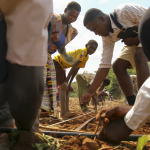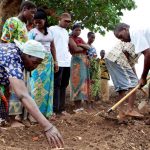Despite progress, Malawi faces development challenges of poverty, food insecurity, and malnutrition. To address these issues, the Government of Malawi developed a National Resilience Strategy (NRS) to guide investments in agriculture, promote household resilience, strengthen management of Malawi’s natural resources, and work closely together with stakeholders. CARE and partners, including IFPRI’s Compact2025 initiative and funding […]
Featured Resources: Week of August 19
An Intergovernmental Panel on Climate Change special report (summary for policymakers | full report) explores how land use—including for agriculture and food production—contributes to climate change and how climate change affects land and food security. It finds that agriculture and forestry represented 23 percent of total net anthropogenic greenhouse gas emissions during 2007–2016 and suggests […]
Featured Resources: Week of December 4
The SUN Movement Annual Report 2017 highlights the progress in SUN countries and achievements of SUN networks and nutrition champions, as well as the challenges that still need to be addressed. In 2016-2017, countries including Burkina Faso, Ethiopia, Mauritania, Myanmar, and Nigeria reported significant declines in the number of stunted children. However, more work is […]
“Malawi must move from relief to resilience“
Dr. Saulos Chilima, Vice President of Malawi and Compact2025 Leadership Council member, wrote on op-ed on the actions urgently required for Malawi to move from humanitarian relief to food system resilience. The article draws from Chilima’s keynote address at IFPRI’s recent Compact2025 Forum in Lilongwe and emphasizes five key points: Identify successful programs to be […]
Moving from relief to resilience: Compact2025 Forum in Malawi
“Building resilience is no longer a talk show, it is a matter of action,” urged Right Honourable Dr. Saulos Klaus Chilima, Vice President of the Republic of Malawi





